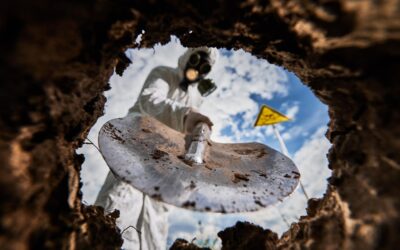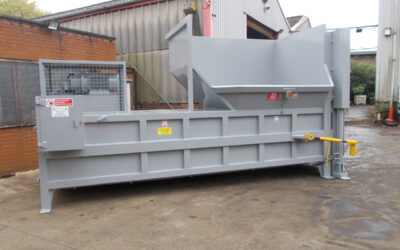
Here at Inspire Waste Management, we know that people need all types of waste collections to take place to follow the UK laws in place. If your business happens to produce metal waste, we want to help you understand why collection scrap metal is an important process for your business to participate in. So, in this article, we have compiled everything you would like to know about scrap metal collection. Let’s get into it!
Scrap Metal Collection Services
Get a quote for the collection of Scrap metal today.
Get a quote
What is Classed As Scrap Metal For Collection?
The types of scrap metal can be any metal composition, whether it is a piece or sheet of scrap metal of any shape and size. All metal is also suitable for recycling and safe to dispose of whether it is ferrous or non-ferrous.
Perhaps you’re wondering what does ferrous and non-ferrous metal mean? What’s the difference between them? We’re here to tell you!
Ferrous Metals
This type of metal is usually magnetic and very often contains iron. They are often used in housing construction, industrial applications, or large-scale piping due to their tensile strength and durability.
Examples of Ferrous Metals
- Cast Iron – used in a massive range of items, such as machine tools, cookware, and even water pipes.
- Wrought Iron – unlike other ferrous metals, this resists corrosion, so it is frequently used for railings and fencing.
- Steel – widely used in construction and manufacturing industries because of its machinability and strength.
Non-Ferrous Metals
Unlike ferrous metals, non-ferrous metals do not usually contain any iron; therefore, they aren’t magnetic. An example of what they are used in could be the aircraft industry because non-ferrous metals have the required strength with a lighter weight.
Example of Non-Ferrous Metals
- Stainless steel – this is commonly used in cookware, medical equipment, and architecture due to its corrosion resistance and hard-wearing nature.
- Tin – the ability to have a highly polished finish and non-corrosive nature means it is often used to coat other metal items, like food containers. It is also commonly used for soldering.
- Copper – very ductile and malleable and an excellent conductor of electricity and heat, so it is used for electrical wiring.
- Aluminium – can be readily welded due to its lightweight property, and it is often used in food cans, kitchen utensils, and aircraft manufacturing.
- Nickel – resists corrosion at high temperatures, so it is used for kitchen utensils like pots and pans, rechargeable batteries, coins, water faucets, and jewelry.
- Lead – used for soldering, batteries, and electrical power cables because of its low tensile strength and melting point.
- Brass – it is commonly used for musical instruments, locks, gears, valves, hinges, and ammunition. This is because of the corrosive resistance and low friction properties.
- Bronze – its low friction properties, natural lubricity, and high strength make it very versatile. It can be used for door and window hardware, marine architecture, sculpture, and creative projects because of the high quality and aesthetically pleasing finish.

Property Differences of Ferrous and Non-Ferrous Scrap Metal
Corrosion
Ferrous metals have a high carbon content which makes them more susceptible to corrosion. The only exception to this would be wright iron because the iron content in it is much higher. This means it is significantly more critical to recycle ferrous scrap metal responsibly, and we can help you there! Non-ferrous metal contains no iron. Therefore, it is far more resistant to corrosion, so it is often used for roofing and gutters.
Magnetic Properties
Like previously mentioned, the main difference between ferrous and non-ferrous metals is that ferrous metals are magnetic. This is what makes them so useful for use in motor and electrical manufacturing. On the other hand, a non-ferrous metal is used for actual electrical applications and wiring because of its non-magnetic properties.
Weight
Ferrous metals are heavier than non-ferrous metals. So ferrous scrap metal may require a bigger skip hire for scrap metal removal!
Cost
You may think ferrous metals have a more expensive metal price due to their weight, but it’s the opposite! Non-ferrous metals are often have a more costly metal value because they are in higher demand, so there is a lesser supply and more competitive prices.
Recycling
Both types of scrap metals can be recycled. But there are still crucial differences, mainly in the processing stage of recycling. Non-ferrous metals can be repeatedly recycled because none of their chemical properties degrade. However, ferrous metals need to be melted, purified, and compacted in the process.
As non-ferrous metal is in high demand, therefore, scarce, so they need to be recycled.
Get a quote for the commercial collection of scrap metal.
Why Should I Participate in the Collection of Scrap Metal?
Now that you know about the different types of metals and their uses, you can surely understand how vital metal is for daily life.
Here are a few facts about metal scrap recycling:
- 490.98 million metric tons of crude steel were produced worldwide using recycled metal in 2019 — however, only 32% of the 1,532.51 million metric tons of crude steel produced in total, according to The Balance Small Business publication.
- Iron and steel are the most recycled scrap metal in the world. This is likely because of the simple recycling process, as only magnets are needed to separate them from mixed waste.
- Aluminium cans are the most recycled containers in the world.
- By recycling one aluminium can, you could save enough energy to power a 100-watt light bulb for almost four hours.
Benefits of Scrap Metal Recycling
Maybe you still need more convincing about collection and scrap metal removal. So we have compiled more reasons why you should care about recycling your scrap metal and why you should consider looking into scrap metal recycling.
Landfills
We want as little of our waste into landfills as possible. This includes metals. The biodegradability of metals can take anywhere from 50 to 500 years! We can surely all agree that is far too long. Our landfill capacity is limited, and the waste that goes to them is having awful effects on our environment. By having a scrap metal collected by professional business you reduces the amount of scrap metal going straight to the landfill.
Energy Use
Far more energy has to be used to create pure metal than recycling scrap metal. Mining and processing metal ores and treating the metal for use in everyday life is extremely expensive and very environmentally damaging. Did you know that if you recycle aluminum, it requires 95% less energy than creating virgin aluminium? Scrap metal recycling makes for more efficient use of metal scrap and waste management.
Natural Resources
By mining and processing virgin metal, we are using up more of our limited natural resources. But by recycling scrap metal, nothing needs to be mined, which helps preserve our natural resources; it’s a win-win!
Also, mining is a very destructive process, not just by depleting our natural resources but by ruining the local environment and wildlife habitats. The cost of mining is also monetarily high, which is reflected in consumer competitive prices.
Economy
The recycling industry greatly helps local investments and job creation, therefore, helping the economy. The local scrap metal recycling process takes longer and requires more staff to perform each step, but it will only take one person operating a truck at a landfill to dump our scrap metal.
Repeatable Recycling
As previously mentioned, metal is an excellent material to recycle due to its ability to be repeatedly recycled. Although a few metals might degrade after each recycling process, the rest are unlimited! This means scrap metal is diverted from landfills for an indefinite amount of time.

Scrap Metal Removal – What Happens Afterwards?
Once the scrap collection has taken place at the collection sites, we take the skip to a recycling center, and here are the step-by-step processes that happen in there:
- Sorting – metals are separated from any non-metal items at the transfer station, which is achieved with magnets and sensors to help the separation operation.
- Processing – the next step is to shred the metals to make the melting process easier and quicker, using less energy further down the line. This is because shredded metal has a larger surface area to volume ratio.
- Melting – the metal is melted in a furnace. There are different furnaces for different types of metal, so this uses a considerable amount of energy. That is why the shredding beforehand reduces this (and it is barely any energy used compared to mining!)
- Purification – electrolysis is used to purify the metal so there are no contaminants and the final bars are high quality.
- Solidifying – the melted metal is put on a conveyor belt to cool down and solidify. They are formed into specific shapes (usually bars) for easier use in production lines for recycled metal products.
- Transportation – lastly, the metal bars are taken to various factories to make them into new products ready for consumers to purchase!
How Can Inspire Waste Management Help You with Collection of Scrap Metal?
Our skip hire services will allow you to put your scrap metal somewhere! We allow scrap metal to be collected in our skips, and it will go to a recycling center just like the rest of the non-metal items or general household items. You’ll get your scrap metal removal and waste management for your other waste materials in your business.
Looking to arrange Collection of Scrap Metal?
Get in touch for bulk Scrap Metal Services





